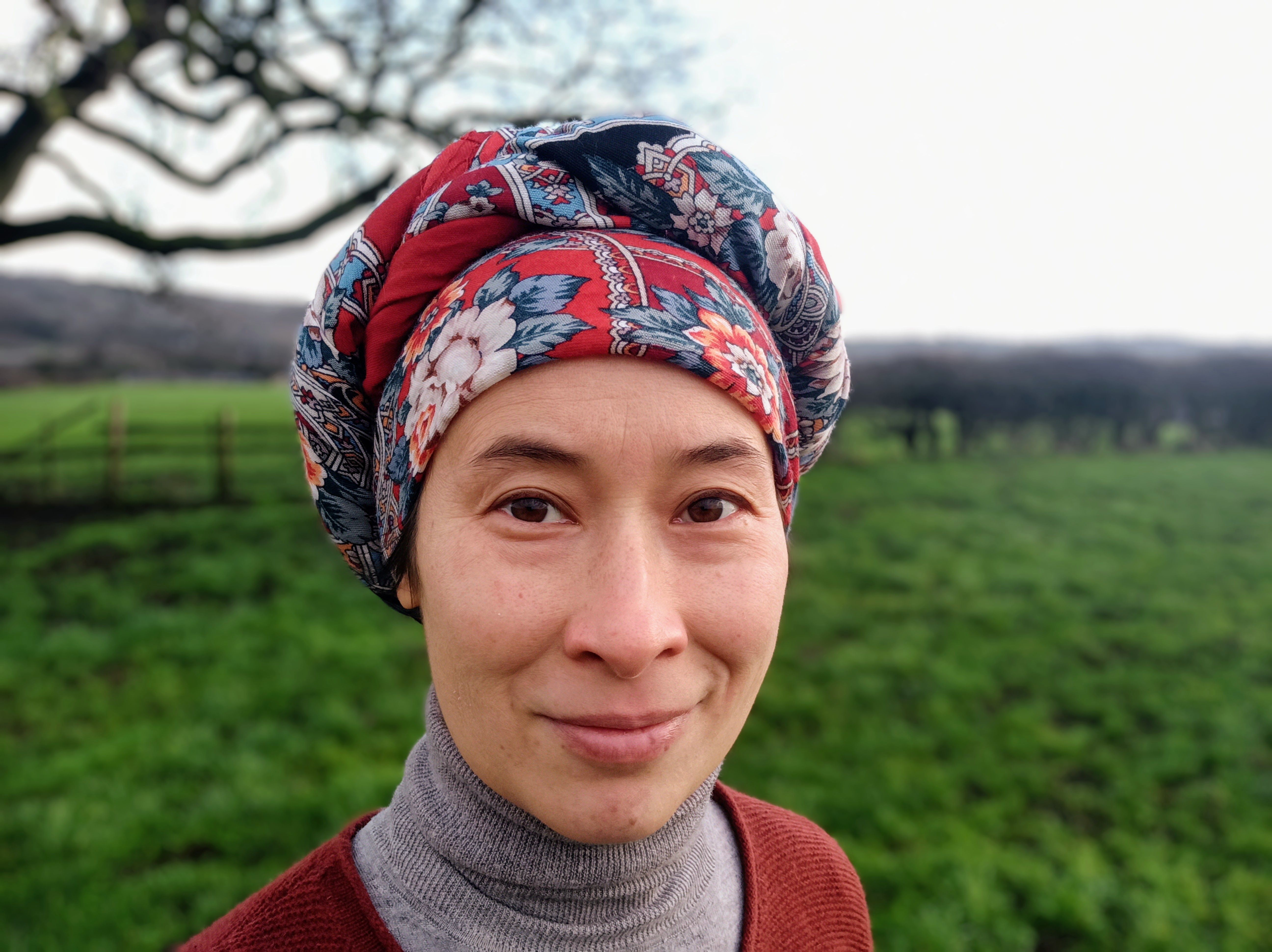
"Train the trainer" programme - Module 1 (out of six)
in Selangor, Malaysia
The Module 1 for the programme is now is fully booked. Waiting list is available - to get your spot on the waiting list please email to nvcinmalaysia@gmail.com
Why this programme?
Humans learn by both observing other human’s behaviour and didactically. With the former, have you ever seen a child repeating swear words after the adults, even though adults tell the child “we do not swear!” - then swear themselves? This is one example of learning by acquisition and by immersion. We observe, we repeat and this becomes a part of our behaviour. With learning didactically, we learn at school, it may be textbook-based learning. We can learn language both ways - from hanging out with people who speak it, and from textbooks and lessons in the classroom.
Yet it is live examples that influence us a lot. Have you ever encountered parents saying to children: “Do as I say, not as I do”?
It can be quite painful and impactful, both as a learner and a teacher, to see the gap between what we teach and how we live. As a learner, when we encounter someone teaching about empathy “how-to” yet not being empathic towards the students in their struggles, out trust of both the teacher and the method may be affected. As a teacher, when we want to share beautiful skills that can be so life-changing, and we find ourselves falling short of empathy, honesty or self-compassion we want to embody, we may feel shame or we may lose faith in ourselves or what we are able to do.
Congruence
Congruence, the match between what we say and what we do, the match between how we communicate during the workshop and what we teach, can make or break our credibility as a facilitator and the learners’ trust in both our skills and methods.
Congruence is so important that we track it even in CNVC certification process. As a part of the certification portfolio, the candidate would be able to see different “angles” of themselves. For example, the candidate would be able to see their inner process through the journaling, how the workshop participants see them through the participants’ feedback forms, and how the colleagues see them through the colleagues’ (including Certified Trainers’) feedback forms. This may be a start of a life-long process whereby we can see different angles of how we are perceived and how we perceive ourselves gives us some idea where we are congruent, and where we have some growing edges.
As we have been mentoring and supporting CNVC certification candidates on their path of certification (including as an assessor for CNVC), we have seen time and time again, how it is the lack of congruence (what someone says and what someone does) that may generate the most heated long-term conflicts.
Based on that experience, we want to offer you a two year-long programme, which will:
- help your find your authentic style as a group leader and facilitator
- live what you share
- be able to solicit and learn from feedback from people with less power and more power than you
-be your authentic self and congruent in a variety of power dynamics
-know when you fell short of your congruence goals and know which steps to take to repair impacted trust
- understand unconscious group dynamics and be able to work with them, for your own congruence and ability of others to learn
-be congruent when leading groups from all walks of life - so that the group process can harness cross-pollination, creativity and productivity that such diversity of participants can bring
-and much more
Who is the programme for?
Group leaders, managers, trainers, CNVC certification candidates, coaches, group facilitators who value collaborative and nonviolent approach to being in the group
Will this be useful for me if I am a CNVC Certification Candidate?
Within the Certification Preparation Packet (CPP) there are requirements around living NVC and sharing NVC, amongst other things. Our intention in this programme is to support the candidates to align how they live NVC with how they share NVC. We hope that from a continuing combination of online and offline groups, you will be able to build your support and accountability systems, which will enhance the quality of your offerings. Likewise, we hope that through the programme offered, you will be able to design, re-design and upgrade the systems that you use around your work with the groups and NVC. Plus, we hope that you will find supportive this programme for your certification journey in case you want mentoring towards your certification, or in case of Olga's being your assessor, to schedule pre-assessment and assessment around the days of the programme.
What is in the programme?
Module 1 Feedback skills and systems
Giving and receiving feedback is a crucial skill for collaborative, effective and creative facilitation. We learn from others’ feedback and being able to receive and incorporate feedback supports individual and group’s learning and productivity. Moreover, without an effective feedback skill set and feedback system set up and working, a lot of energy and resources will end up going towards conflict resolution or losing potential and productivity to unresolved conflicts.
This skill is so crucial to facilitators’ work that this is the first module of the programme. Some things we will cover:
- Feedback as 360 degree process for harnessing the relevant information and building trust
- Establishing feedback system
- Gathering and incorporating feedback:
- In direct cultures
- In indirect cultures
- In challenging power dynamics
- Transforming the obstacles to gathering and receiving feedback:
- Inner obstacles
- Outer obstacles
- Skills for offering constructive feedback
- Working with the obstacles for offering constructive feedback:
- Inner obstacles
- Outer obstacles
- When feedback processes go badly “wrong”*:
- Life hacks and approaches on how to turn such situations around
For those continuing onto Module 2 (spaces on the next Module can be booked at the end of the Module 1 via a small deposit):
- Trainer-lead practice and learning time between Module 1 and Module 2: two-hour long Zoom group sessions once a month
- Community learning time between Module 1 and Module 2
What about the rest of the programme?
We have structured the programme so that over two years, you get 24 in-person training days, a peer support network, mentorship - and all other things that you need for being a leader and group facilitator in a sustainable way. If you want to see the content of the following modules, please see FAQ below. Throughout the programme (online and offline) you have a combination of three trainers (see below) with their unique skills and training styles, and experiences of living NVC in families, groups and organisations in South East Asia and East Asia.
About your facilitators
Olga Nguyen has facilitated groups with Nonviolent Communication and other modalities for the last 18 years. Olga has trained the trainers and has worked internationally as an NVC Certified Trainer, CNVC Assessor and a Certified Trainer at CNVC IITs. Olga has worked with systems and structures, including as a part of the team, including in CNVC New Futures Process and CNVC Assessors Coordination Council.
Boon Ling Choy is based in Malaysia and had worked as a corporate trainer in the areas of communication, competency-based training, etc., for moe than twenty years in various local and multinationl organizations, SMEs, colleges, and other community-based groups.
She is the first Center for Nonviolent Communication (CNVC) certified trainer in Malaysia. Her passion has always been in people development as she has a firm belief in creatig upward spirals in people’s lives.
Boon Ling incorporates some mindfulness practices and other learning modalities in her workshops. She advocates taking responsibility for our inner and outer experiences through the practice of Nonviolent Communication (NVC). Her mission in shring NVC is to help cultivate compassionate consciousness that brings connection and empathy to the forefront.
Mika Maniwa is a CNVC CT and Asessor working together with Olga and Boon Ling to support Certification Candidates in South East Asia. Some words from Mika: "Based in Vancouver, Canada, I’ve been offering NVC training for individuals and organizations for over 15 years. As a second-generation Japanese Canadian impacted by war-generated trauma, I practice compassionate inquiry about emotionally reactive behaviours and explore what is needed to increase our capacity for well-being, dialogue and collaboration."
Pre-requisites
Completed Foundation Level NVC course: can use self-empathy and empathy.
When?
Thursday 2 April -Sunday 5 April 2026
Where?
WISE Sanctuary is located close to Bukit Gasing, popular with those enjoying hiking, beauty of the tropical forest, and immersion in nature.
Gasing Heights,
46000 Petaling Jaya,
Selangor, Malaysia
FEES/payment
Please note that this platform tries to add tax for IP addresses from some regions. If this is the case for you and you see any other amount than USD 750 BEFORE 15 Dec 20205 and USD 900 after 16 Dec 2025, you can pay via bank transfer in Malaysia, Singapore, EU, UK and the USA. Please contact us at the below email address for more information.
Questions?
If you have any questions or want to check whether your registration via the website has gone through, please contact NVC Malaysia at +6016 257 3573 (phone, WhatsApp) or email nvcinmalaysia@gmail.com
Your Instructor

- Supported families and organisations with NVC since 2007
- Certified CNVC Trainer since 2012
- Assessor with CNVC cnvc.org
- Trained NVC trainers since 2011
